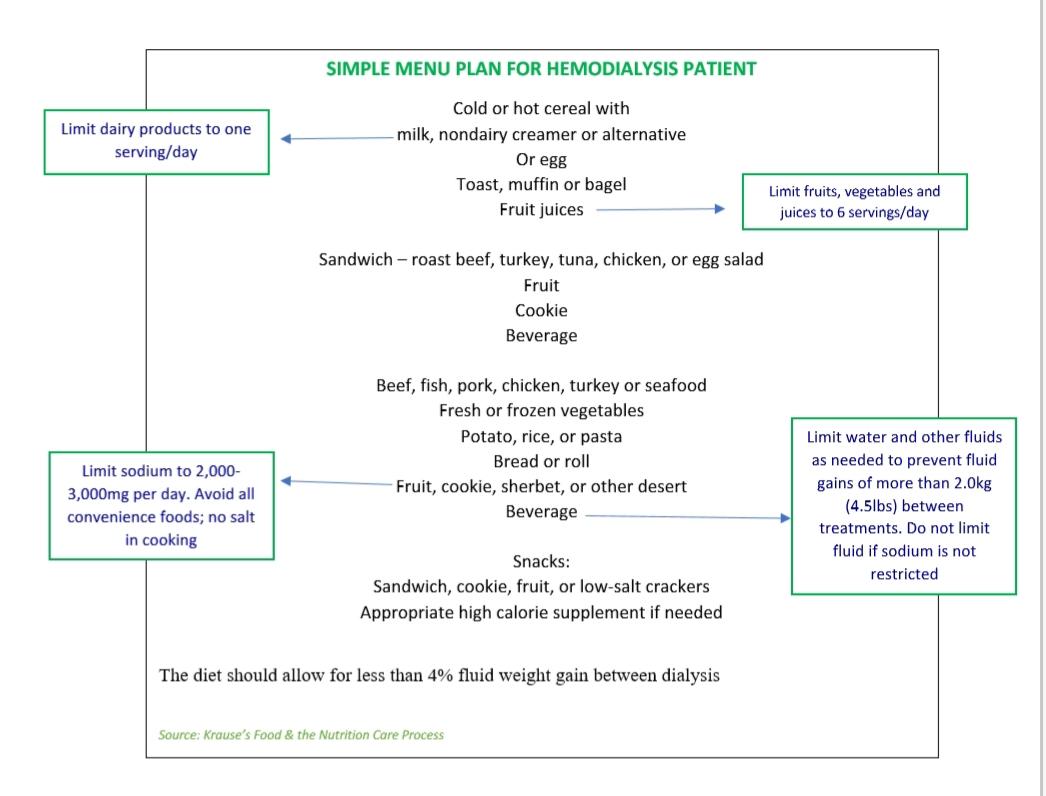A major function of the kidneys is to remove waste products and excess fluid from the body. These waste products and excess fluid are removed through the urine. By this means the kidneys help to maintain the balance of fluids, electrolytes (salts and minerals found in the blood) and organic solutes. The kidneys accomplish this task by continuous filtration of the blood, making alterations in secretion and reabsorption of the filtered fluid.
Each human kidney contains about 1 million functioning units called nephrons which are primarily involved in urine formation. Urine formation ensures that the body gets rid of the final products of metabolism and excess water in an attempt to maintain homeostasis (a constant internal environment).
The majority of the substances dissolved in the urine (solute load) consists of nitrogenous wastes, mostly the end product of protein metabolism. The amount of urine depends in part on how much protein is in the diet. If normal waste products (uric acid, creatinine, and ammonia) are not removed appropriately, they collect in abnormal quantities in the blood – known as azotemia (an elevation of blood urea nitrogen and serum creatinine levels. The ability of the kidneys to adequately eliminate nitrogenous waste products is defined as renal function, and its inability to excrete the daily load of waste is known as renal failure.
Each human kidney contains about 1 million functioning units called nephrons which are primarily involved in urine formation. Urine formation ensures that the body gets rid of the final products of metabolism and excess water in an attempt to maintain homeostasis (a constant internal environment).
The majority of the substances dissolved in the urine (solute load) consists of nitrogenous wastes, mostly the end product of protein metabolism. The amount of urine depends in part on how much protein is in the diet. If normal waste products (uric acid, creatinine, and ammonia) are not removed appropriately, they collect in abnormal quantities in the blood – known as azotemia (an elevation of blood urea nitrogen and serum creatinine levels. The ability of the kidneys to adequately eliminate nitrogenous waste products is defined as renal function, and its inability to excrete the daily load of waste is known as renal failure.
The kidney also performs functions that are unrelated to excretion:
1. Renin-angiotensin mechanism – a major control of blood pressure – is a group of related hormones that act together to regulate blood pressure. When blood pressure drops for any reason, special cells in the kidney detect the change and release renin into the bloodstream. Renin then converts inactive angiotensin to angiotensin I and then to angiotensin II which is a more powerful hormone that causes large changes in blood pressure.
2. The kidney also produces the hormone erythropoietin (EPO), a critical determinant of erythropoiesis, the process which produces red blood cells.
3. The role of the kidneys in the maintenance of calcium-phosphorus homeostasis in the body includes the production of the active form of vitamin D as well as the elimination of calcium and phosphorus. Active vitamin D promotes efficient absorption of calcium by the gut and is one of the substances necessary for bone remodeling and maintenance.
Causes of Kidney Failure
Kidney failure may be acute - kidney function is lost rapidly and can occur from a variety of insults to the body (such as sepsis) – or from chronic diseases that gradually cause the kidneys to stop functioning (such as uncontrolled diabetes and high blood pressure).
Signs and Symptoms of Kidney Failure
Initially, kidney failure may not produce any symptoms. As kidney function decreases, the symptoms are related to the inability to regulate water and electrolyte balances, clear waste products from the body, and promote red blood cell production.
If it is not recognized or treated, the following symptoms of kidney failure may develop into life-threatening problems.
Nutrition Intervention
Nutrition plays an important role in kidney disease as it can help to control many of the symptoms, plus prevent deficiencies. Eating the right foods is definitely one way to help keep your kidneys as healthy as possible. Most people with kidney disease need to watch their intake of protein, sodium, and potassium. The kidney handles the waste products from the protein you eat. Too much protein in the diet may make chronic kidney failure worse, because it makes your kidneys work harder.
If the person is on dialysis, protein intake must be increased. Energy intake should be enough to spare protein, so the body can make more protein and not have to use it to provide energy. Fluid and sodium balance are closely monitored, with the vast majority of dialysis patients needing to restrict sodium and fluid intakes. The intake of too much sodium is responsible for increased thirst, and increased fluid gain, which results in hypertension. Controlling thirst can be a challenge for the person with kidney failure therefore sucking on ice chips, cold sliced fruit, sour candy or using artificial saliva can help but the best way is to decrease sodium.
Potassium usually require restriction and one should be careful when using low sodium foods as some contain potassium chloride as a salt substitute.
Anemia results because the kidneys are no longer able to produce EPO, the hormone that stimulates the bone marrow to produce red blood cells. As a result, recombinant human EPO is used to treat this form of anemia.
1. Renin-angiotensin mechanism – a major control of blood pressure – is a group of related hormones that act together to regulate blood pressure. When blood pressure drops for any reason, special cells in the kidney detect the change and release renin into the bloodstream. Renin then converts inactive angiotensin to angiotensin I and then to angiotensin II which is a more powerful hormone that causes large changes in blood pressure.
2. The kidney also produces the hormone erythropoietin (EPO), a critical determinant of erythropoiesis, the process which produces red blood cells.
3. The role of the kidneys in the maintenance of calcium-phosphorus homeostasis in the body includes the production of the active form of vitamin D as well as the elimination of calcium and phosphorus. Active vitamin D promotes efficient absorption of calcium by the gut and is one of the substances necessary for bone remodeling and maintenance.
Causes of Kidney Failure
Kidney failure may be acute - kidney function is lost rapidly and can occur from a variety of insults to the body (such as sepsis) – or from chronic diseases that gradually cause the kidneys to stop functioning (such as uncontrolled diabetes and high blood pressure).
Signs and Symptoms of Kidney Failure
Initially, kidney failure may not produce any symptoms. As kidney function decreases, the symptoms are related to the inability to regulate water and electrolyte balances, clear waste products from the body, and promote red blood cell production.
If it is not recognized or treated, the following symptoms of kidney failure may develop into life-threatening problems.
- Lethargy
- Weakness
- Shortness of breath
- Generalized swelling (edema)
- Generalized weakness due to anemia
- Loss of appetite
- Lethargy
- Fatigue
- Congestive heart failure
- Metabolic acidosis
- High blood potassium
- Fatal heart rhythm disturbances including ventricular tachycardia and ventricular fibrillation
- Rising urea levels in the blood may lead to brain encephalopathy, pericarditis (inflammation of the heart lining), or low calcium blood levels (hypocalcemia)
Nutrition Intervention
Nutrition plays an important role in kidney disease as it can help to control many of the symptoms, plus prevent deficiencies. Eating the right foods is definitely one way to help keep your kidneys as healthy as possible. Most people with kidney disease need to watch their intake of protein, sodium, and potassium. The kidney handles the waste products from the protein you eat. Too much protein in the diet may make chronic kidney failure worse, because it makes your kidneys work harder.
If the person is on dialysis, protein intake must be increased. Energy intake should be enough to spare protein, so the body can make more protein and not have to use it to provide energy. Fluid and sodium balance are closely monitored, with the vast majority of dialysis patients needing to restrict sodium and fluid intakes. The intake of too much sodium is responsible for increased thirst, and increased fluid gain, which results in hypertension. Controlling thirst can be a challenge for the person with kidney failure therefore sucking on ice chips, cold sliced fruit, sour candy or using artificial saliva can help but the best way is to decrease sodium.
Potassium usually require restriction and one should be careful when using low sodium foods as some contain potassium chloride as a salt substitute.
Anemia results because the kidneys are no longer able to produce EPO, the hormone that stimulates the bone marrow to produce red blood cells. As a result, recombinant human EPO is used to treat this form of anemia.

References
Krause’s Food & The Nutrition Care Process
By L. Kathleen Mahan, Janice L Raymond
https://www.verywellhealth.com/what-is-the-renin-angiotensin-system-1763941
https://www.medicinenet.com/kidney_failure/article.htm#what_causes_chronic_kidney_failure
http://n411.consultant360.com/n411/content/chronic-renal-kidney-failure-q
Krause’s Food & The Nutrition Care Process
By L. Kathleen Mahan, Janice L Raymond
https://www.verywellhealth.com/what-is-the-renin-angiotensin-system-1763941
https://www.medicinenet.com/kidney_failure/article.htm#what_causes_chronic_kidney_failure
http://n411.consultant360.com/n411/content/chronic-renal-kidney-failure-q
